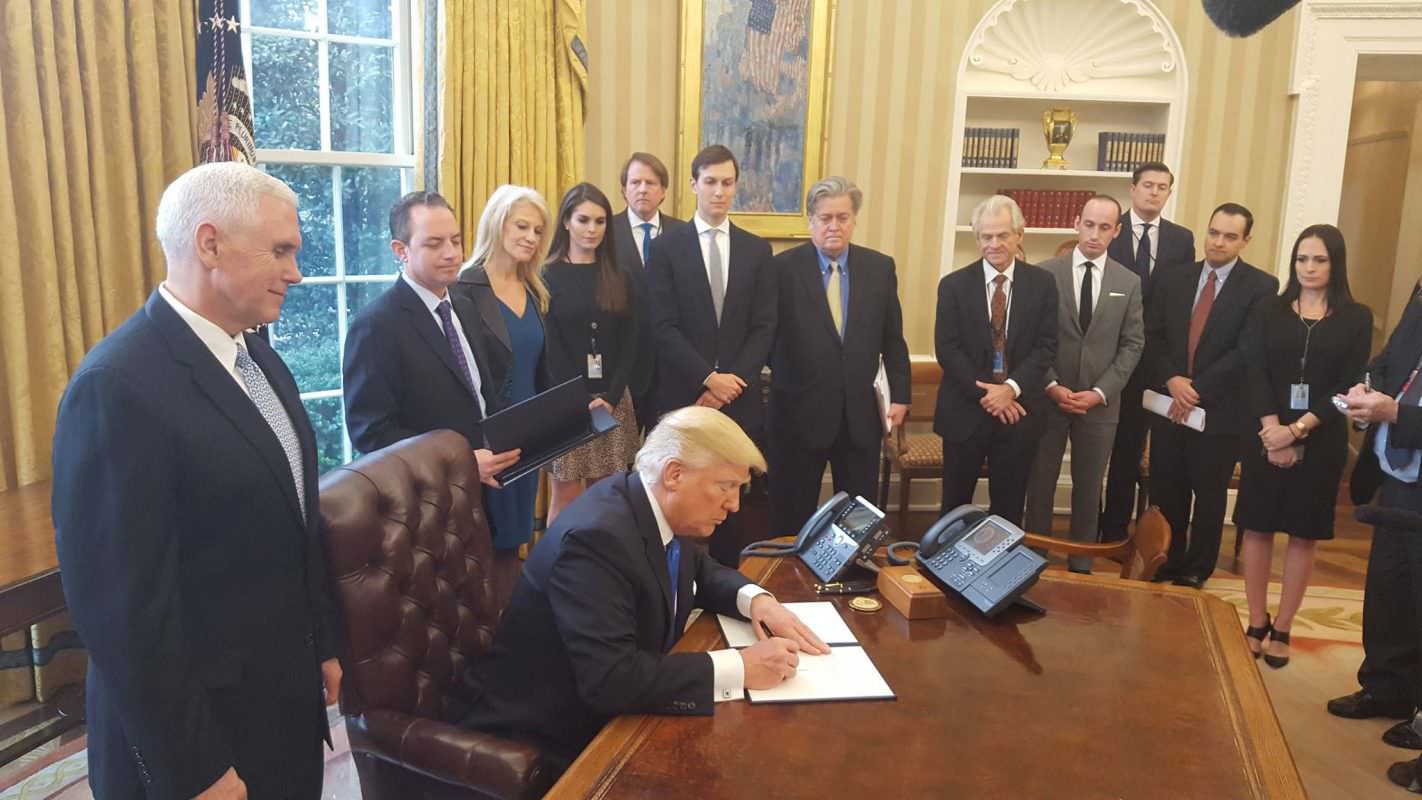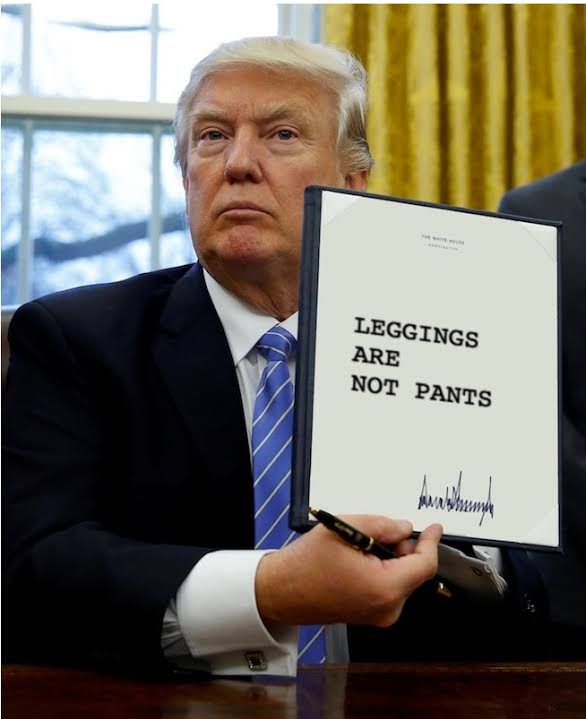US Election
The Runaway Executive
‘Everyone else has to march up East Street in the heat,’ he’d go on, ‘or make arrangements with my pupil’ (that pupil was me). ‘Why shouldn’t they?’

When I was a pupil barrister in Rockhampton, the Director of Public Prosecutions had their offices in the courthouse, and my pupil master didn’t like it. ‘It looks bad,’ he said, ‘to have the executive sharing an address with the judiciary’.
The DPP could see judges in chambers and file documents by the simple expedient of climbing a flight of stairs. They even drew on the same resources. From time-to-time I’d run into one at the photocopiers thereabouts.
‘Everyone else has to march up East Street in the heat,’ he’d go on, ‘or make arrangements with my pupil’ (that pupil was me). ‘Why shouldn’t they?’
Although – like all young lawyers – I’d studied the separation of powers at university, my pupil-master’s disquiet was an early lesson in its practical application. Giving the State any sort of leg-up in a fight against the People – even if only a sweaty walk up a long street – doesn’t just look bad. It is bad.
It’s bad because we tend to forget – in the peaceful and orderly developed world – just how powerful is the state. Ponder, for example, the difference between what happens to you if you refuse to repay a bank loan as opposed to refusing to pay your taxes.
The bank can take your house and bankrupt you. The tax office can do all those things and then send you to gaol. And the state arm that arrests and prosecutes you? That would be the executive.

Since President Trump’s inauguration – in a development that delights only lawyers, I’m sure — the phrases ‘executive order’ and ‘separation of powers’ have crossed lips everywhere. There are online meme generators where an animated Trump makes executive orders mandating that leggings are not pants or that toilet rolls always be hung over, not under, the holder.
The jokes work because Trump embodies the runaway executive, offering little sign he understands the constitutional roles of the three branches.
No, you can’t appoint judges to lock up Hillary Clinton. You don’t get to pull the US out of NAFTA, because Congress made the deal with Mexico and Canada by statute. And if you really do try to ‘open up’ libel law, you’ll discover this is an area where you have no power.
This is because Congress makes the law. It’s the legislature. The Courts interpret the law. They’re the judiciary. And the President, he executes the law. He heads the executive.
Trump needs to stop trying to do the job of the other two branches. Twitter isn’t suited to it, and in any case the Founding Fathers are probably spinning so hard in their graves they’ll drill through to Australia shortly.
They wrote the Constitution so those who make the rules and those who enforce them are not the same people for a reason. They paid close attention to Montesquieu’s observation of what was in 1748 the Islamic Caliphate: ‘where all three powers are united in the Sultan’s person, the people groan under the most dreadful oppression’.
Read Article II of the Constitution; it gives presidents remarkably little power. The Founders also wanted some tension, even conflict, between the three branches. That’s the ‘check’ in ‘checks and balances’.
Try to imagine, for example, if footballers not only made the rules but did their own refereeing, or if the police not only got to decide which laws to enforce, but were given the power to make those laws.
Of course, the runaway executive didn’t start with Trump. It’s merely more apparent now. Trump’s personal style makes his abuses of power obvious, and many progressives — particularly Obama-boosters — are hypocrites.
Going back to the Lincoln administration, power has ebbed from the legislature and flowed to the executive. Presidents have been happy to take the power. Congress has been happy to give it up. The Supreme Court has often approved it. And now here we are.
Obama drew on the same expansive source of executive power for his drone attacks and foreign electronic surveillance as George W. Bush did to open Guantánamo and conduct ‘enhanced interrogations’. I well remember which abuses attracted the most attention. A honeyed tongue covers a multitude of sins.
Democrats and Republicans alike have decried it, but when their party is in power, they’ve supported it because ‘their man’ is doing the right thing. He’s correcting the previous lot’s ‘errors’ or, like Obama, just being less obvious about it.

Remember how furious Republicans were when Obama ignored Congress? That’s how Democrats feel now. Wouldn’t it be better if that didn’t happen to anyone?
Trump’s specific policies — ‘Muslim ban’ included, and no matter how viscerally upsetting they are to his opponents — are thus much less important than what they reveal about the robustness of the US’s institutions.
It doesn’t help that — to many of Trump’s opponents — ‘checks and balances’ means freezing their policy preferences into law. We’ve seen since January 20 how most people are unable to distinguish between whether they agree with a policy and whether its implementation highlights weaknesses in America’s institutions.
Transferring law-making power to the executive also means the judiciary becomes the only brake on power, putting the weakest branch in conflict with what is now the strongest.
Giving the executive power to do your bidding is dangerous. Yes, you may currently have your hands on the levers of power, as well as be in the position to manufacture more levers, but in a democracy, you will lose an election at some point. Then those opposed to you get their hands on (a) the levers you used against them, as well as on (b) all the new levers you’ve made.
That means giving up on seeing some precious beliefs enacted into law. I get that. However, it’s worth remembering that you can’t always get what you want.
You may, however, get what you need.






